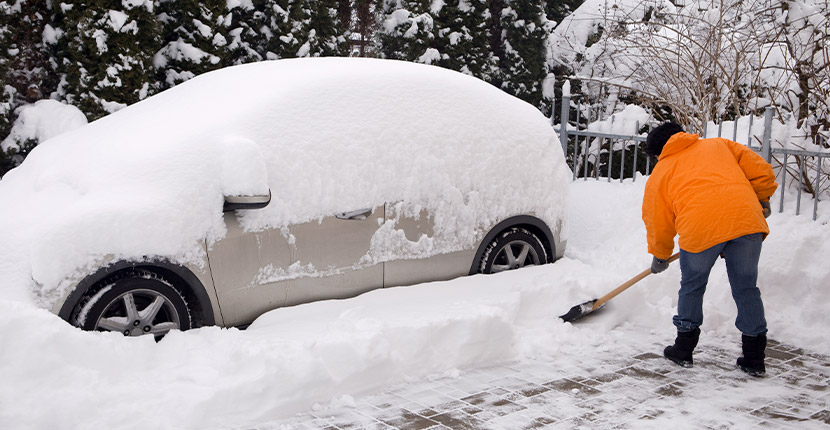Should You Let Your Car Warm Up Before Driving It?
- by Bryan Veldboom - updated on 11/30/2021

Winter weather is tough on vehicles. The cold thickens the fluids in the engine, while slowing down the chemical reactions in your battery, making it harder to turn over your engine. We've written about how to keep a battery from dying in the cold and discussed the importance of regular maintenance checks, but what should you do on a daily basis? Should you let your car warm up before driving it? Does warming up your car in winter have any benefits? Should you keep your gas tank full? Keep reading for answers to your most commonly asked questions about winter driving.
How Long Should You Let Your Car Warm Up?
People often debate how long to warm up their car in the winter. With modern cars, experts say that you only need to warm them up for about 30 seconds before you start driving. The engine will actually warm up much faster while the car is being driven.
Should You Warm Up Your Car in the Winter?
The idea that you should let your car warm up for long periods of time is a holdover from the days when cars had carburetors instead of fuel injectors. A carburetor is a device that mixes air and fuel inside the engine to create a specific ratio for combustion. In these old cars, the intake manifold had to reach a temperature hot enough to vaporize the fuel before routing the air/fuel mixture to the engine's cylinders. Cars with fuel injectors don't have this issue.
Does Revving a Cold Engine Damage It?
We often get asked, "Is revving your car bad?" or, "Can revving your engine damage it?" Yes, it can damage your engine. Revving your engine will not make it warm up any faster, but it will subject your engine to increased stress before the oil has had the chance to circulate properly. You should also avoid accelerating too quickly until the engine has fully warmed up. That doesn't mean you have to putter along at 20 miles an hour, but be sure you're not stomping the pedal to the floor right after you've started your engine.
What Does the Temperature Gauge Indicate?
The temperature gauge in your engine helps measure the temperature of the engine's coolant. If your vehicle has a temperature gauge, you'll know that your engine is fully warmed up when the needle positions itself midway between the C and H.
Should I Keep My Gas Tank Filled Up in Winter?
Experts recommend keeping your gas tank at least half full in winter for a number of reasons. Keeping your tank half full will prevent condensation from forming in the gas tank and help prevent your fuel lines from freezing. A half full tank will also help preserve your fuel pump. When you run low on gas, the fuel pump can begin sucking in air. This causes it to heat up, which can contribute to it failing prematurely. Having plenty of gas in your tank is also wise in case you get stranded. If your vehicle gets trapped in snow or ice, you'll still be able to run the heater to keep you warm until help arrives.
Batteries Plus Has Everything You Need for Winter Driving
If you live in an area impacted by cold, stop in and have your battery tested at your neighborhood Batteries Plus. We also carry new batteries for cars and trucks, including AGM batteries, which are better equipped to handle cold weather. You'll also find vehicle battery chargers, replacement headlight bulbs, windshield wiper blades and more in our Automotive Center.
Do you have a seasonal vehicle that you're storing for the season? Learn how to maintain it during the winter months. Are you having a hard time starting your vehicle? Learn if your battery, starter or alternator is at fault.